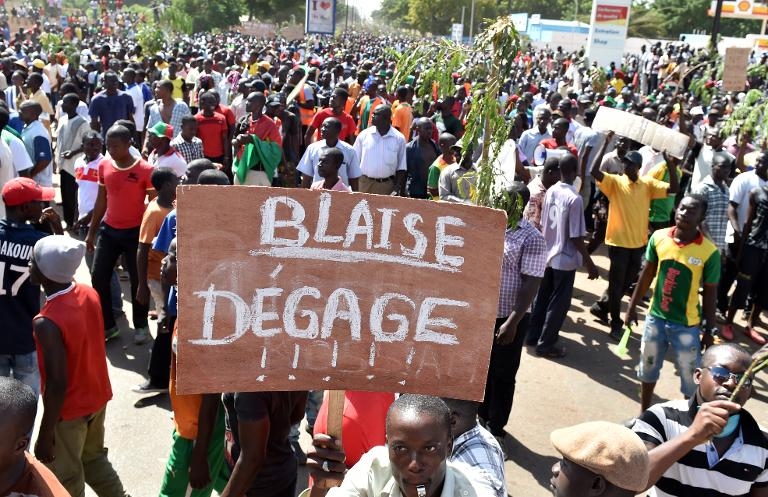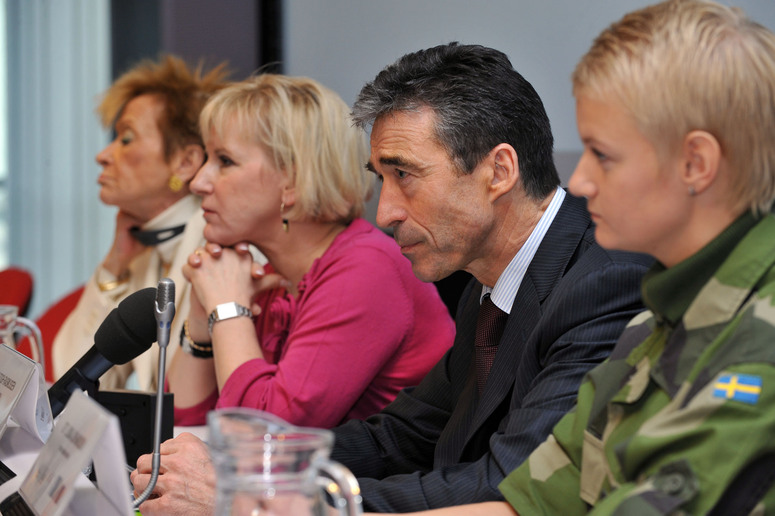On October 31, 2014, Burkina Faso president Blaise Compaoré stepped down from power, officially ending his 27-year long rule as the country’s leader. Compaoré’s decision to terminate his position in office came in the wake of wide-spread demonstrations and protests against his government following the announcement that the country’s constitution was to be amended in order to allow Compaoré to run for re-election in 2015. As a result of such protests, Compaoré and his family were forced to flee Burkina Faso for the Ivory Coast.

Compaoré first seized power in 1987, following a political coup that resulted in the assassination of Thomas Sankara, Burkina Faso’s visionary leader. Since then, Compaoré has won four sucessive elections, all of which have been called into question by the country’s political opposition, who have argued against the legitimacy of the election results.
Since Compaoré’s resignation, Burkina Faso’s military has assumed leadership, with Lt. Col. Isaac Yacouba Zida declaring himself interim leader, until a new president is elected. Colonel Zida has tried to reassure the people of Burkina Faso that it is not his intention to retain power indefinitely, and that the army will eventually cede authority to a transitional government and appoint a new leader. In a statement, Zida said “we are not here to usurp power and to sit in place and run the country, but to help the country come out of this situation.”
Despite Compaoré resignation, political turmoil continues throughout the nation. On November 2, 2014, gunfire erupted in the headquarters of the country’s state-owned television network, killing at least one person. On that same day, roughly 1000 people gathered in the nation’s capital to demand a civilian-led transition after Zida was appointed interim leader.
The violence and destabilization of Bukina Faso’s political structure has created dramatic divisions throughout the country. Opposition leader Stanislas Benewinde Sankara called for the dismissal of Zida’s government, stating that “the army cannot lead us. They have disqualified themselves.” The United States and the African Union have spoken out against the military’s actions, urging it to transfer power to the country’s civilian population. “We call on the military to immediately transfer power to civilian authorities,” said U.S. State Department spokeswoman Jen Psaki, adding “we urge civilian leadership to be guided by the spirit of the constitution of Burkina Faso and to move immediately towards free and fair Presidential elections.”
Burkina Faso is one of the poorest countries in West Africa, with an HDI (Human Development Index) ranking 183 out of 187, as of 2012. The nation’s GDP is US $684 per capita. The 2014 Ibrahim Index of African Governance lists Burkina Faso 21 out of the 52 countries listed. The country also scored 53.2 out of 100 on participation and human rights.
This is not the first time that a leader in Africa has opted to amend his country’s constitution in order to retain political power. Presidential leaders in Burundi, Benin, and the Democratic Republic of Congo are all currently being criticized for engaging in undemocratic practices in order to prolong their terms in office.
The sudden change in political leadership in Burkina Faso has caught the attention of the international community. It is the hope of the citizens of Burkina Faso that their country will engage in a smooth transition towards a new leader and a new government. Transparency is of the utmost importance, since the country’s history of political misfortune and corruption have severely damaged the nation’s democratic process. Rebecca Mukuna




